When you’re famous you don’t belong to yourself

Today's Hell World is lighter and a bit more fun than we usually have around here and I'm sorry about that. It begins with a very strange thing that happened to me the other day. I sat down in the morning and opened up a book and I read the book and then I finished the entire book in one day. I can't remember the last time I managed to focus my rapidly drying out brain to do such a thing. Maybe with Fever Dream by Samanta Schweblin which I wrote about almost exactly one year ago here:
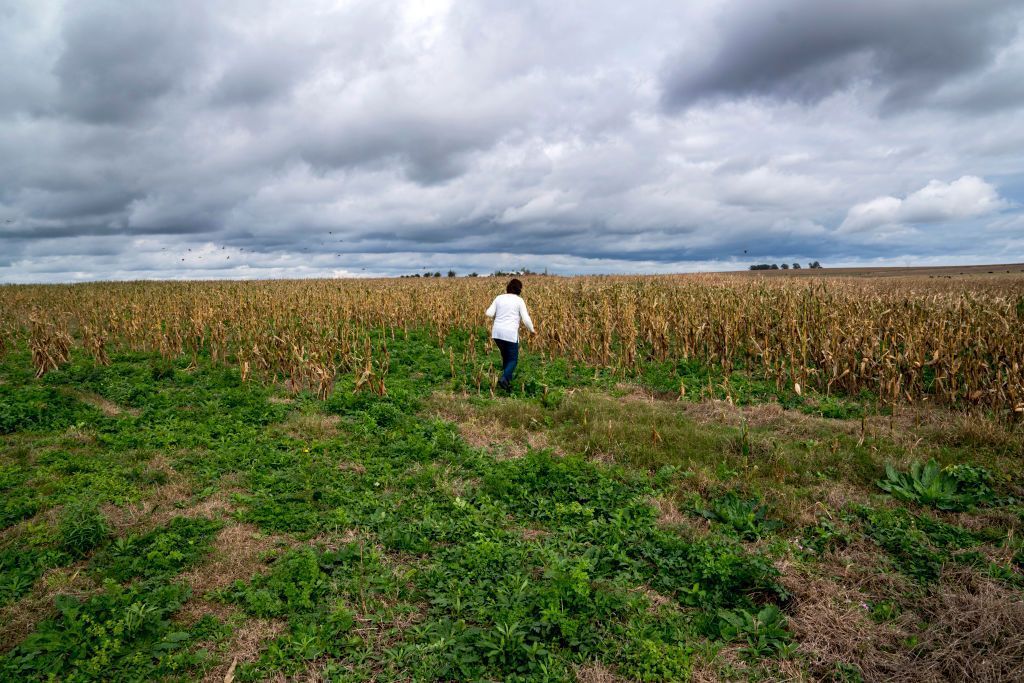
Perhaps it went so quickly this time because unlike Fever Dream and most of the books I tend to read this new one The Lemon didn't instill within me a sense of all-consuming dread. Except for the parts about working at a website. Instead its story of the fallout of the death of a beloved Anthony Bourdain-like character was funny and sharp and satirical and a brutal indictment of two worlds I'm very familiar with: the restaurant industry and craven digital media.
The novel – which you can buy here – was written by three people at once collaborating under the pen name S. E. Boyd: Kevin Alexander and Alessandra Lusardi and Joe Keohane who I interview in character down below. Keohane happens to be one of my oldest friends and colleagues in the business and you may remember him writing for Hell World a couple of times including this great piece about the early days of covid in New York City:
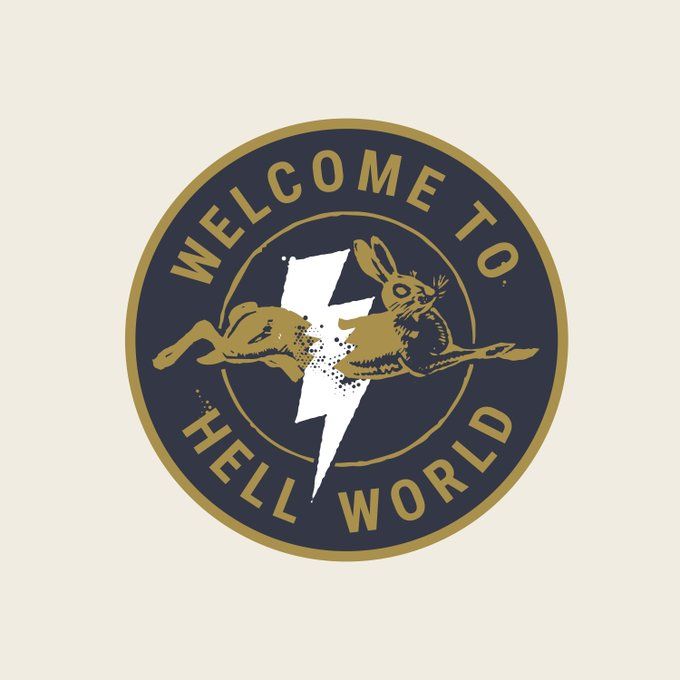
It’s been said before the Covid-19 exploited some key American vulnerabilities: an individualism that can be indistinguishable from pathological selfishness. A society that moves around a lot. And, of course, a government ruled by vandals, paranoids, and dead-enders. But for me one of the hidden vulnerabilities was our national addiction to a certain idea of heroism. James Baldwin wrote this about cops during a protest march: “There they stood in twos and threes and fours, in their Cub Scout uniforms and with their Cub Scout faces, totally unprepared, as is the way with most American he-men, for anything that could not be settled with a club, or a fist, or a gun.” The coronavirus crisis was incompatible with American hero mythology, with our idea of action. We simply did not have the psychological tools to cope with something that would not respond to violence, threats, or bombast. You couldn’t kick its ass, or root for the army to kick its ass, or even console yourself with fantasies of kicking its ass yourself--that sad but enduring Walter Mitty man-saves-the-day fantasy that I suspect provides much of the drive of the American male’s love for guns. No, with Covid there was no comfort in violent fantasy. You couldn’t do anything. You really could only do nothing. In fact, for the vast majority of us, nothing was the thing you had to do. And the country failed spectacularly, and 2020 feels like the year that will never end.
Both of those pieces I linked above are pay-walled now but you can read them with a subscription. Since this worked well the other day I'm going to run this offer again: Purchase a full-priced year's subscription to Hell World today and I'll send you one of my books of your choosing for free.
Speaking of my books pages of A Creature Wanting Form actually exist in the world now and it is at the printer and I believe should be arriving at your home within a couple more weeks if all goes well. Thanks so much to everyone who has ordered. If you like the pieces in here when I am really on my full Luke bullshit I guarantee you are going to love it. Probably won't want to finish it all in one day though.
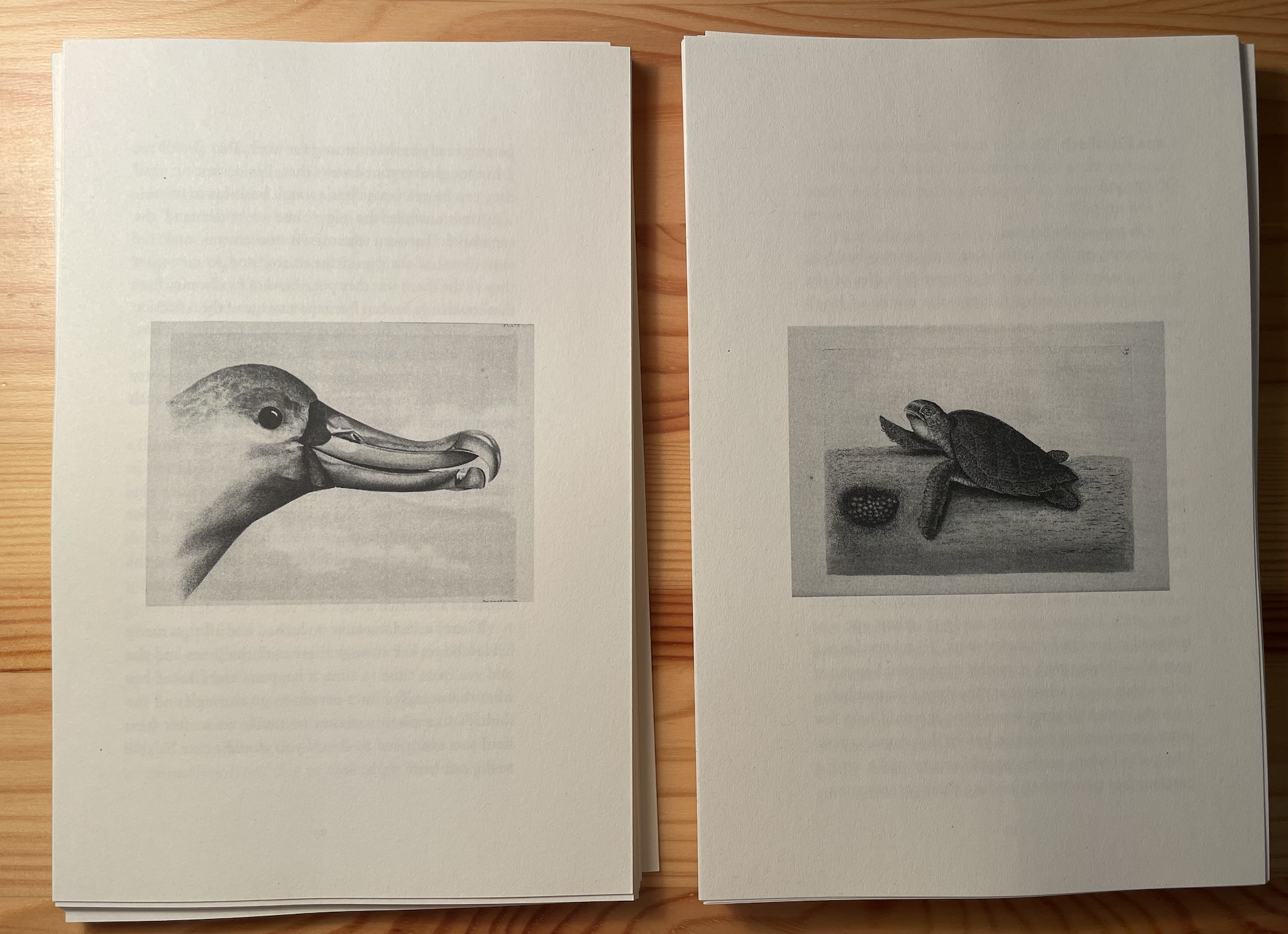
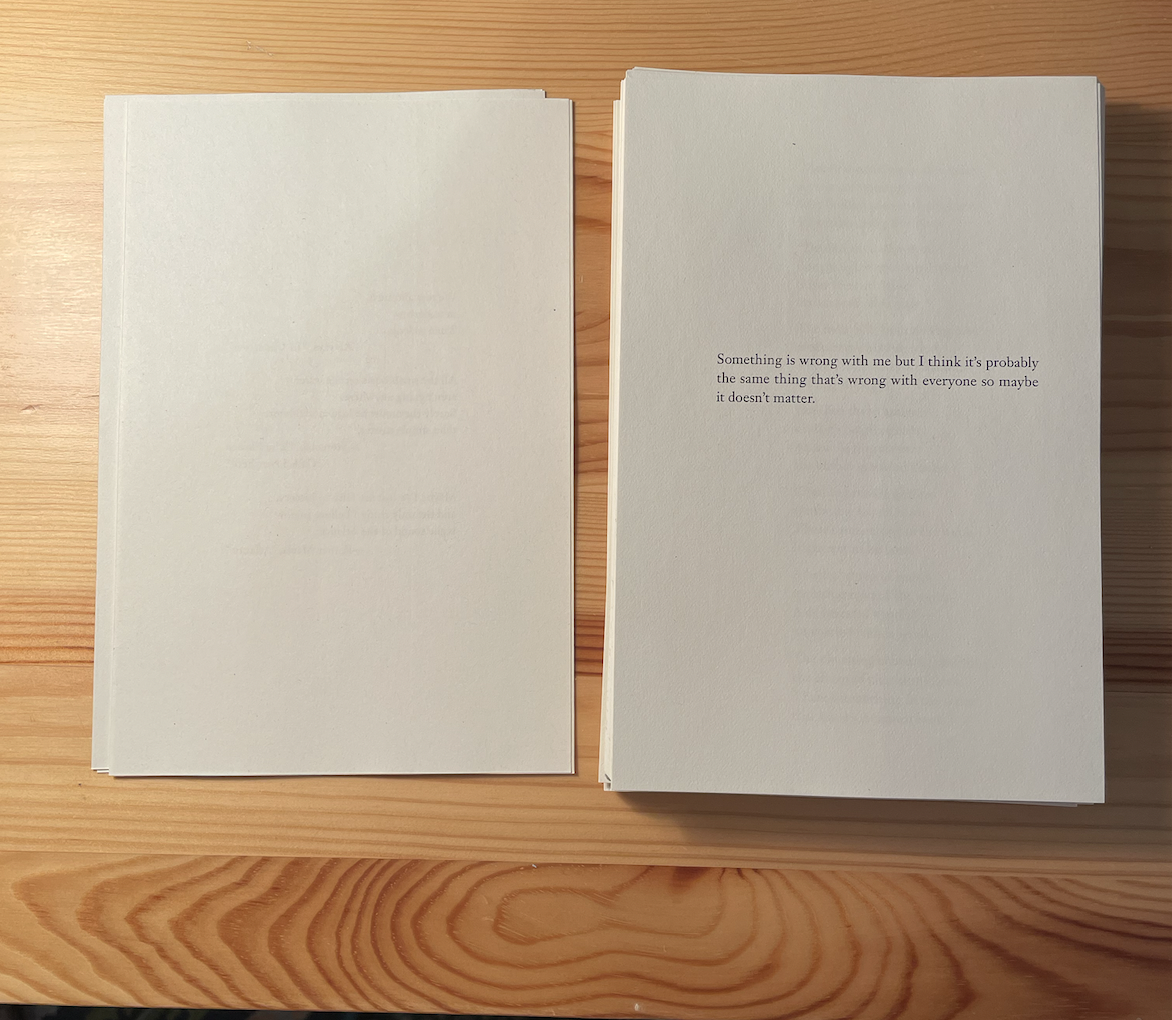
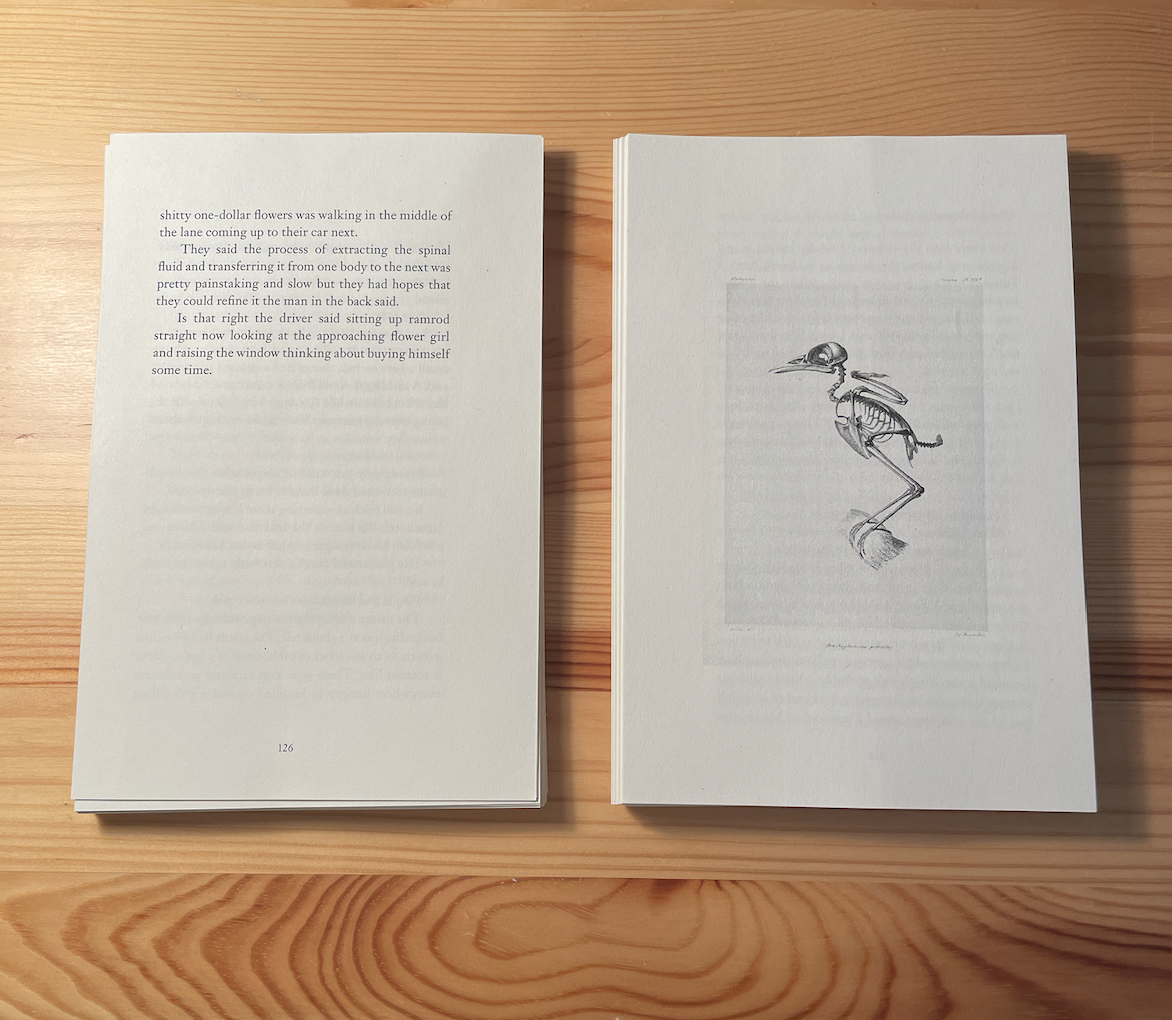
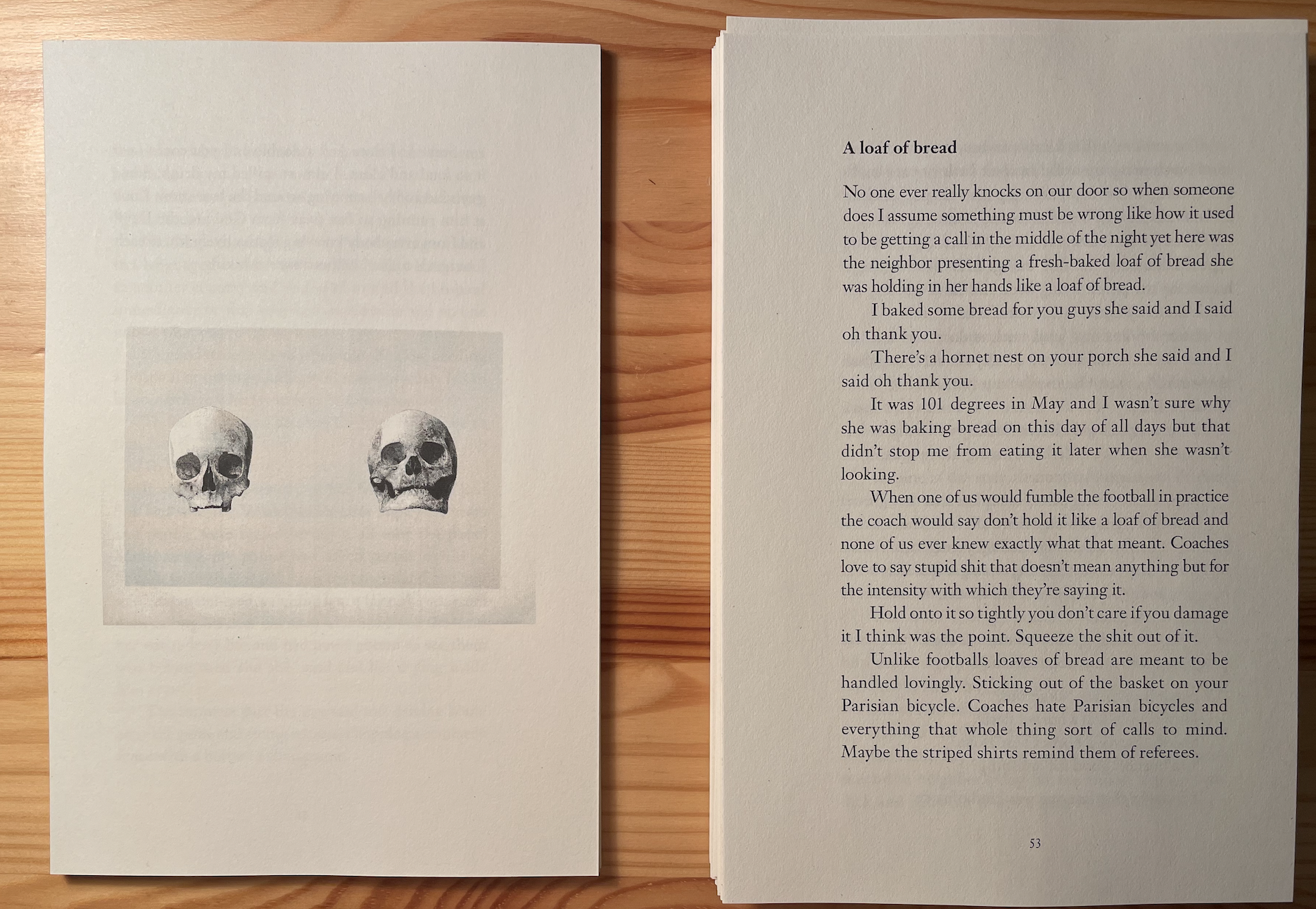
Real quick before we get to The Lemon party here's the type of nonsense from the "apolitical" New York Times journalists I was writing about the other day in this one on their dreadful coverage of trans issues and their spiteful heel-digging reaction to some of their colleagues saying enough is enough.
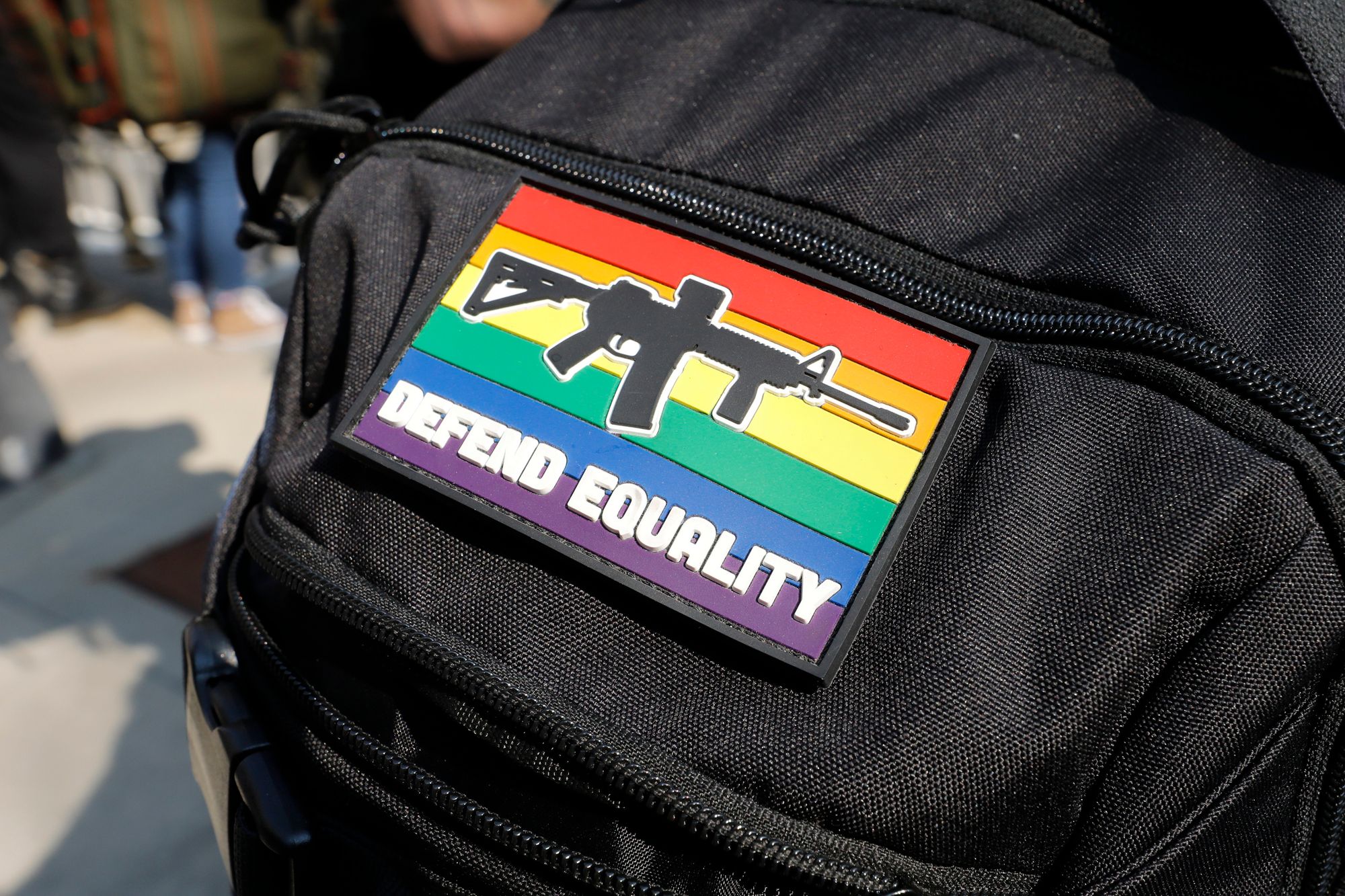
This right here is a perfect example of how these types lie directly to your face with their neutral costume. "I'm not involved with guild politics." Buddy you know we can see you getting involved in guild politics right here in your tweet right?
I'm a supervisor, so I'm not involved with guild politics. But I stand behind the principles this letter forcefully articulates in defending the work of Times journalists. https://t.co/43MT4JsMB5
— Nick Fox (@NickFoxNYT) February 21, 2023
Yes older brothers of the world we know you are not technically touching us but your fingers are nonetheless right there in our faces.
By the way I love clocking in at my job at the Neutral Journalism store where we harvest and process every new fact of the day then type them up and shuffle them so as to not show favor to any fact then dump the new 10,000 page tome on our readers doorstep each morning.
One more thing before we get to me and S.E. Boyd. Since we're going to be talking about Boston Irish shit please enjoy whatever is going on here. Presumably it's Wahlberg's attempt to rebrand Lent which if you think about it really was the original grindset bro challenge.
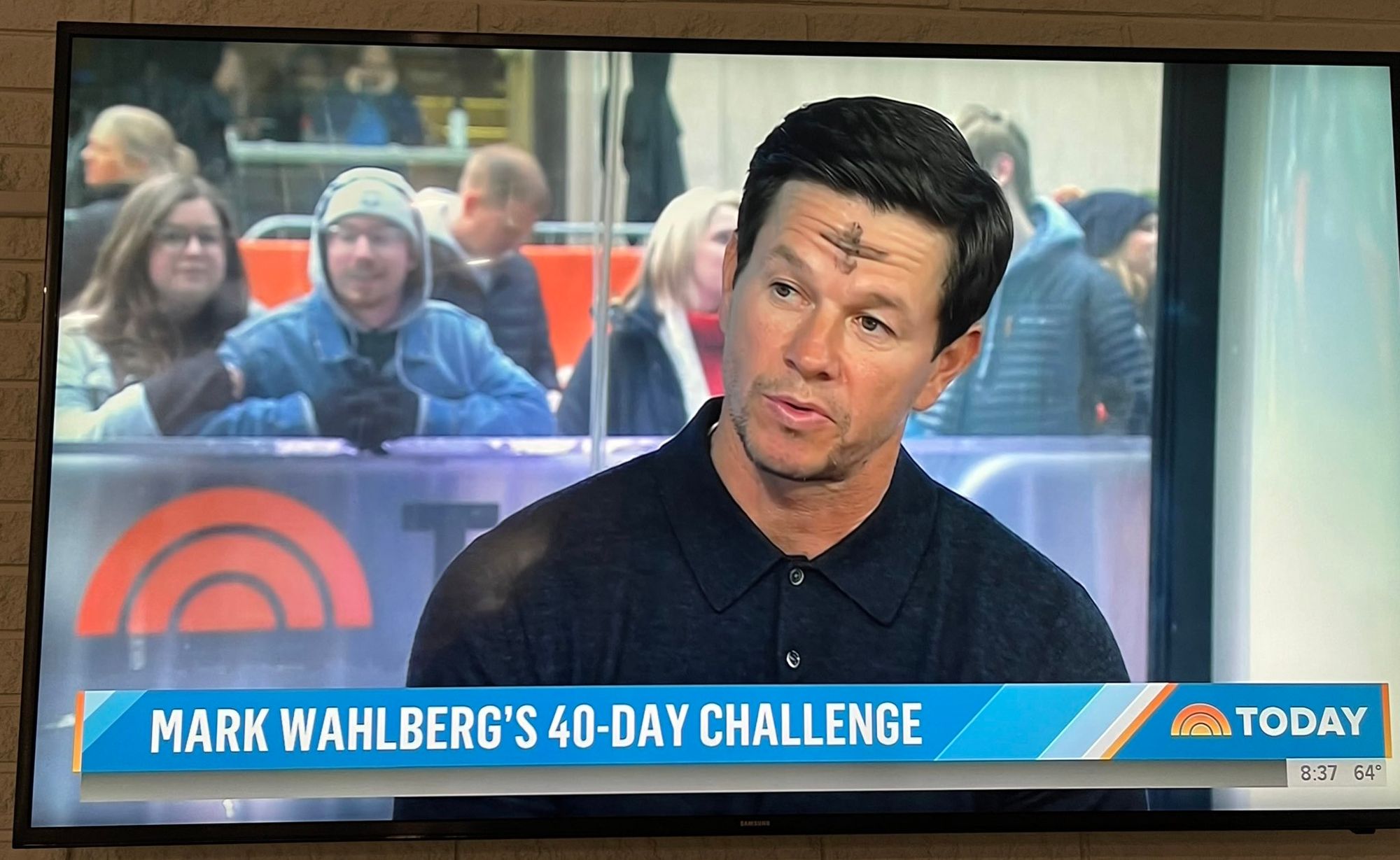
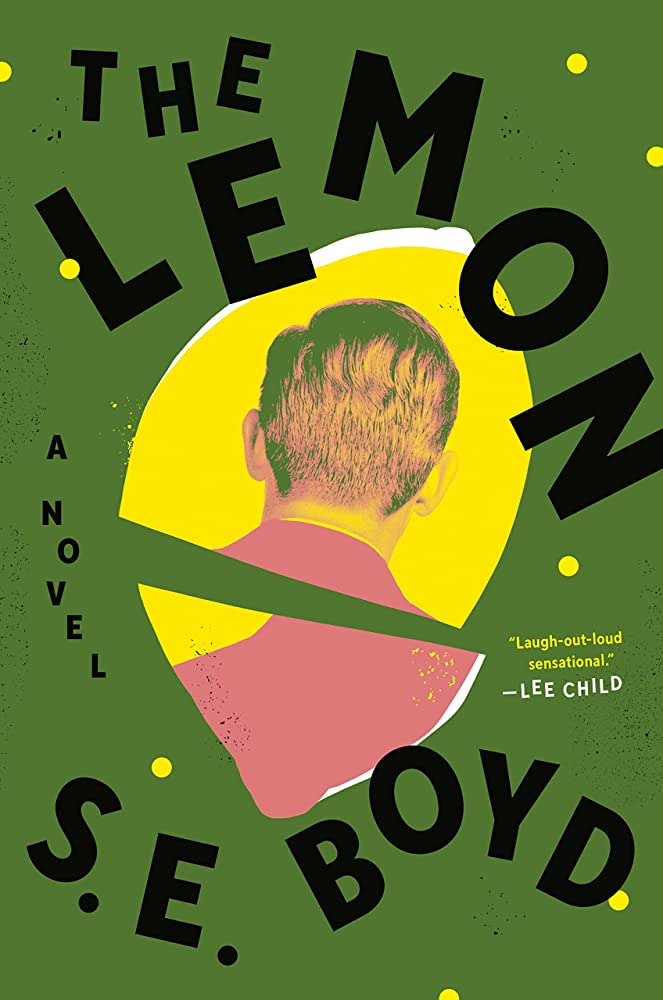
Aside from how the actual writing of this novel together worked, why did you even think to try it in the first place?
We’re all friends–Joe and Kevin have worked together in the press for years; and Alessandra has edited Kevin’s two books–we were all procrastinating on book projects, and we just liked the idea. A Bonfire of the Vanities-esque novel about a beloved food world celebrity name John Doe killing himself by accident, his best friend passing it off as a suicide, and this whole galaxy of principled and unprincipled media and food people jockeying to protect his reputation, or profit from the lie, or just use the tragedy to drive traffic or move units.
It definitely reads like a TV series in a way, so I’m guessing you approached it something like a writers room? Is that something any of you have experience with?
Yeah, that’s exactly it. We haven’t worked in TV properly–though Joe and Kevin wrote a pilot once about The Troubles in Belfast that Aiden Gillen said was great, but also that if anyone ever made it it would single-handedly rekindle violence in Northern Ireland…
Wait is that true?
Actually true. We took it as a compliment. But, like you said, we did write this book like a writers room. We’d write chapters and circulate them to one another, mark them up, meet on Fridays to resolve the notes, plan the next week’s work, make assignments, and keep going. It’s a great system if you can work really fast and not kill one another. Which we haven’t done, though none of us are ruling it out.
Having worked with Joe for many years as my editor I would help you other two hide the body.
The collaborative novel idea is interesting to me, just in general, but also because earlier this year me and two friends were trying to work on a non-fiction book together, and it was really hard to get all of our voices to align, and eventually we said fuck it. How did it play out for you three?
The thing that made it work was pragmatism. A lot of novelists write out of a need to express their truest, purest, deepest artistic selves–and if you get two of those people on a project together, god help you. There is a ton of all three of us in this book–but our goal was to write a great, fast-paced story, with vivid characters, and lots of savage but true insights into the cultures of celebrity, food, and media in America. We’re all pretty simpatico, which helped as far as the tone goes, but we also had Alessandra live-editing the copy as it came in, so anything that clanged was flagged and fixed quickly.
It does read seamlessly, although I had fun guessing here and there what parts were probably Joe's. Mostly the Boston-Irish bullshit I imagine.
Actually Kevin and Joe both grew up in and around Boston–they met at Boston magazine–and they talk about that town’s uniquely fucked-up mentality endlessly and also have watched this absolutely classic slab of townie mayhem like a hundred times in the last two months. The city is different than it used to be, but it can still be such a hostile place. People are so aggro, but also so funny, and so mean. There’s a tossed off line in the book that captures that sort of reptilian aggression: “As Paolo watched a teen wearing a Winthrop High School football letterman jacket throw a full Dunkin’ Donuts iced coffee cup at a duck…”
I think I know that kid.
You should. He’s based on you.
My letterman jacket was from Silver Lake Regional High School thank you very much.
We changed that detail because you’re known for being litigious.
John Doe is obviously a Bourdain-like character. Was there any trepidation about writing a version of someone so beloved like that that a lot of people might be protective of or sensitive about?
Maybe a little? But we couldn’t base the Doe character on anyone else, really, because there are no other celebrities that are so revered for being authentic–which is obviously a contradiction in terms: you can’t be famous and authentic, because when you’re famous, you don’t belong to yourself, you lose the ability to define yourself. And that was the heart of the book for us: what does it mean to be real in these worlds? Can you be real and be famous? Can you be real in a celebrity culture, or even a market culture? What do the tradeoffs look like for people trying to get ahead, or even just survive, in those worlds?
We also like playing with this idea we’ve been calling “the celebrity death industrial complex.” That’s when someone beloved dies, and everyone scrambles to glom onto them in some way–out of some impulse to be close to greatness, or feel special, or receive some reflected glory, or even just to burnish their shitty social media brands. Our joke is, “I can’t say I knew David Bowie, but I saw him in the airport once, and we locked eyes. Neither of us spoke, and it was only for a second, but it was profound, and it changed the way I think about content marketing in the crypto sphere.”
Funny that you mention Bowie because he was the one that taught me it’s ok to be weird.
Yeah, blame Bowie. But, anyway, Bourdain got this treatment in a huge way. Everyone wanted a piece. And they still do. Whatever trepidation we might have had before the book was published didn’t last long. Not only did people get what we were doing in commenting on John Doe’s legacy, but there continues to be endless examples of the gross media behavior we’re poking at–stuff like throwing Anthony Bourdain’s name in the headline of an article or post that has only the most tenuous connection to him, or something he once said, or a place he once visited. Not a week goes by where we don’t see it.
In writing Doe, we wanted to attack that phenomenon, without attacking the man himself. So we took pains to make sure the Doe character came across really favorably, even if he is only in the book for a minute and exists mostly in the memories or misrepresentations of other characters.
Why the choice to have the actual Bourdain also exist in this world then?
No spoilers, fucker!
Sorry, sorry. One more spoiler if I can though. I did sort of wonder if all the digressions about the specifics of the 19th century whaling industry really moved the plot along.
We can see why you’d say that, but we also think it’s important to note that while in general shape the noble sperm-whale’s head may be compared to a Roman war-chariot; so, at a broad view, the Right whale’s head bears a rather inelegant resemblance to a gigantic galliotted shoe. Two hundred years ago an old Dutch voyager likened its shape to that of a shoemaker’s last. And in this same last or shoe, that old woman of the nursery tale with the swarming brood, might very comfortably be lodged, she and all her progeny.
Well I think we can all agree your contention here is that The Lemon is more important than Moby Dick.
Moby what?
So your book skewers the worlds of celebrity chefs as well as the vapid digital media world. Did any of you have a background in the food world as well to draw from?
Kevin has worked in print and digital media for 20 years, mainly covering food. He won a James Beard Award for a piece that Joe edited, and he published a history of the last 15 years of the American restaurant scene called Burn the Ice, which it pains Joe and Alessandra to admit is extremely good. Also, Alessandra, apart from working as a top book editor in NYC for many years, comes from a family of immigrant restaurateurs. So she’s well versed in the media and food worlds, too.
But Kevin and Joe have both been around to witness the absolute collapse of written media as we know it, shifting from a print model in which companies make money, to an online model where everyone works twice as much for half the money and the companies lose millions of dollars anyway. There is a desperation and crude stupidity to the way media companies operate now that we really attacked in this book. There’s a character, Katie Horatio, who works at a terrible content mill called SWVLL and gets so stressed out by the relentless demands of the click economy that she has a dissociative episode, severs from herself, and becomes a lewd, psychopathic monster. Only then does she succeed. That one’s also based on you, too.
Haha. I did find those chapters from her point of view working at the digital chum factory particularly stressful. I guess that’s part of why I liked this book so much, being someone who worked as a restaurant and bar writer as well as a waiter and bartender for many years, and also knowing that pressure of needing to wake up every day and populate the internet with dog shit or else you won’t be able to afford the rent.
It’s a horrorshow. But at least there’s kombucha on tap.
Seriously though, not to give anything away, but there is a character who is a real legendary piece of shit, and there were times I was thinking, and maybe someone actually says this later in the book, is this guy the Devil? Was there any consideration of how to walk that line between realism and heightened potentially supernatural elements?
Right. You’re talking about Smilin’ Charlie McCree, the Northern Irish hotel porter who finds himself in possession of a certain damaging photo, and embeds himself in the life of Doe’s best friend–the great Chef Paolo Cabrini–back in New York. There are demonic elements to Charlie for sure, but to us he’s a chaos agent, almost an instrument of cosmic punishment. Charlie doesn’t even seem to know he’s leaving a trail of total destruction behind him. He just thinks he’s the world’s luckiest boy having the world’s greatest time with his new best friend in America. That’s what makes him really frightening. As three lapsed and damaged Northeastern Catholics, that idea really appealed to us. Joe actually almost got a watch engraved with the words “CHARLIE LIVES,” but he worried it would be bad mojo so he didn’t.
It’s almost Coens-like now that I think of it. Charlie in particular seems like he’d fit in well in the Fargo Cinematic Universe.
Absolutely.
I did find the portrayal of the head of the website, the Bryan Goldberg-role character, although it’s not really like him, I don’t think, particularly revolting. Was there anyone specifically that guy was based on?
We’re not saying, because that kind of guy can be even more litigious than you are. But the depiction of River, the founder of SWVLL, is absolutely an act of revenge–if not against one person, then against that type of guy, who is everywhere. We set up River like this: “The clothes that J. Barton 'River' Middlebury III wore were like children’s clothes, only larger and infinitely more expensive: sweatpants, a hoodie, a bright orange flat-billed cap that may as well have had a propeller on top, and a pair of gigantic neon high-tops. Sometimes he rode a longboard to work. Sometimes he rode it at work, a sight that flooded Katie’s mind with fantasies of murder. Otherwise he just looked like a Romney.”
Like I said the book reads like a TV series, and I gather you were hoping that it would be optioned for one all along? I was telling Joe the other day that all of my happiness for him after I read the book curdled into spite once he told me it had been. I am a Boston guy after all, where hating is in our blood. How did that come to fruition?
We have a great agent by the name of Allison Warren, who handled it all. All we did was try not to say anything horrible in meetings that might blow up the deal. We were about 80 percent successful at this.
Is there a series that you all tossed around when you were working on the book as a reference point?
Not when we were writing it, but beyond The Bear and The Menu, which we liked a lot, The White Lotus comes up a lot. Especially the first season: A group of highly fortunate, well-fed people and those who are charged with serving them are made very unhappy by a corrupt system with a fundamentally dehumanizing incentive structure. Plus, like White Lotus, we have jokes that damaged our standing in the eyes of our parents. We’re speaking of course of the cheese orgy.
This interview is a bit lighter than the type of thing I usually cover here. Got anything particularly depressing or oppressive on your mind lately?
Yeah: CHARLIE LIVES.
Purchase The Lemon here.
